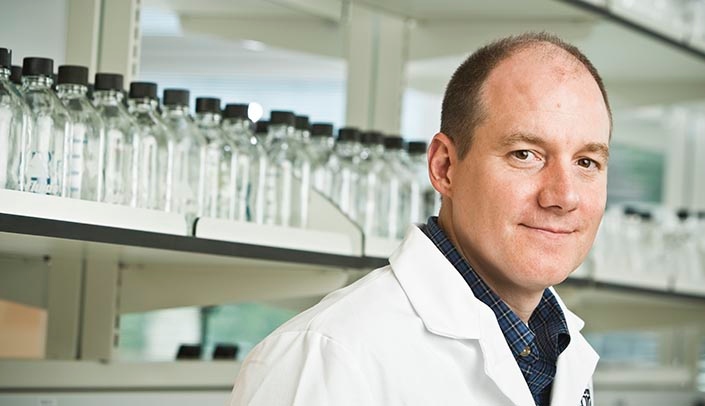Ken Bayles, Ph.D., associate vice chancellor for basic science research at UNMC, will discuss the development of countermeasures to biological weapons of terror at the next Omaha Science Cafe at 6:30 p.m., April 11 at the Slowdown, 729 N. 14th St.
Dr. Bayles received his training in bacterial genetics at Kansas State University, where he earned his doctorate degree in 1989 for his studies of toxin production by the Gram-positive pathogen, Staphylococcus aureus.
Dr. Bayles did his post-doctoral studies at the University of Maryland examining the regulatory response to DNA damage in Bacillus subtilis and S. aureus. He then moved to the University of Idaho, where he established his own laboratory focusing on cell death mechanisms in S. aureus and discovered a new family of proteins that controls these processes.
After nine years in Idaho, he joined the faculty at UNMC where he became the founding director of the Center for Staphylococcal Research and combined the talents of several investigators to focus on the role of staphylococcal biofilm in the development of disease.
Dr. Bayles’ research interests have since expanded to include Department of Defense-related activities including work on countermeasures against biological weapons of mass destruction, such as the development of vaccines to protect against anthrax and biological toxins. Dr. Bayles also serves as the Research Coordinator for the National Strategic Research Institute for the medical passive defense against weapons of mass destruction core competency.
Science Cafes involve a face-to-face conversation with a scientist or medical professional about current medical/science topics. They are open to everyone (21 and older) and take place in casual settings like pubs and coffeehouses. Each meeting is organized around an interesting topic of conversation. A scientist/health professional gives a brief presentation followed by a question and answer period.
Pizza will be provided for the first 50 people. For more information about Science Cafes, click here. Podcasts of previous Science Cafes also are available on the website or available for download on iTunes here.
